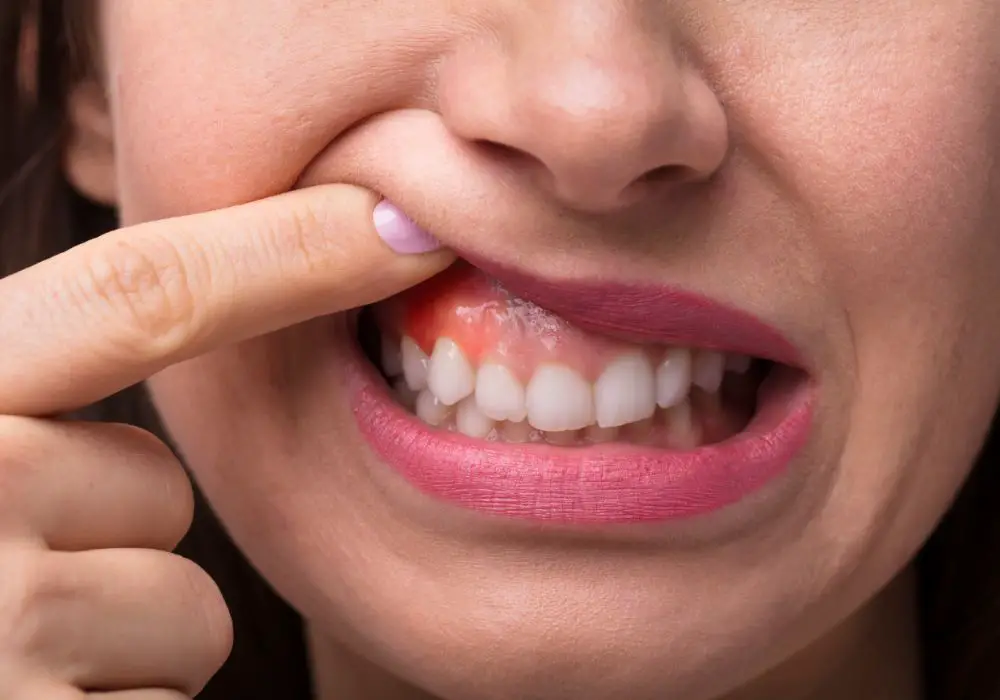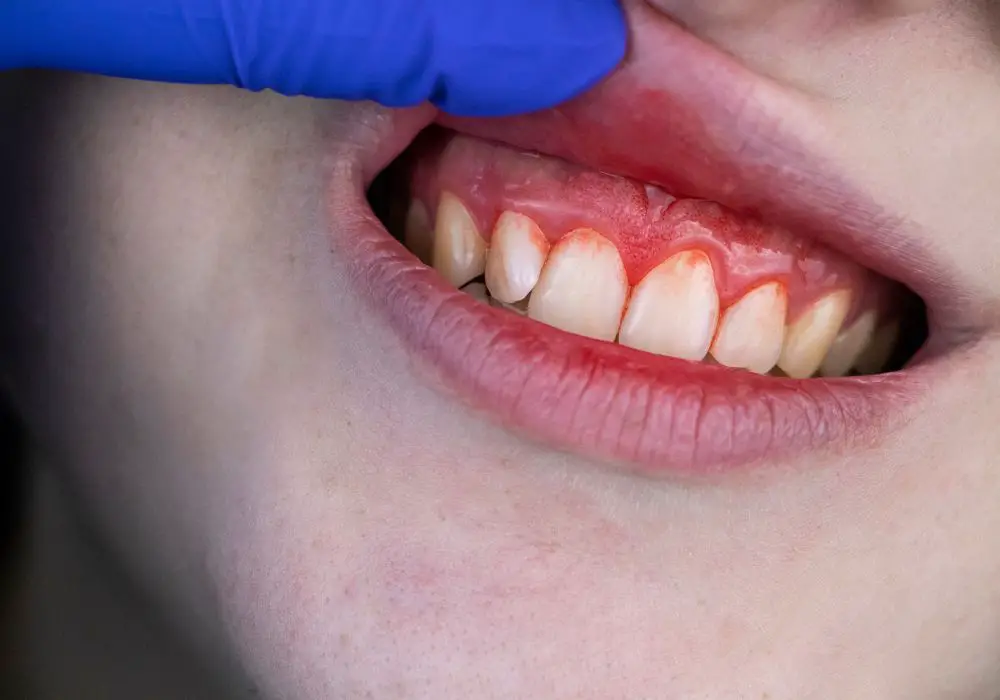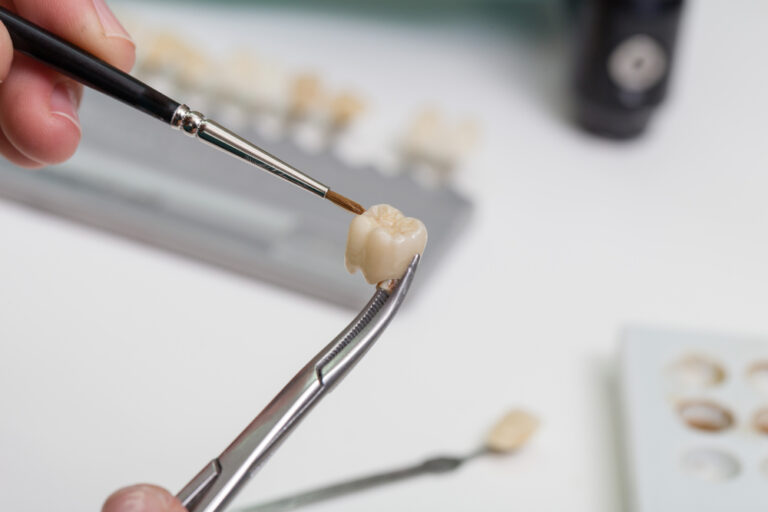Having teeth that feel swollen or enlarged can be uncomfortable and concerning. But what actually causes this common dental symptom? There are a variety of potential explanations.
What’s Happening Inside Your Mouth?
To understand what makes teeth feel puffy and inflamed, it helps to first look at the anatomy of the mouth. Teeth themselves are held in place by the gums, or gingiva. This soft pink tissue surrounds the base of teeth and helps anchor them to the underlying jawbone through tiny fibers called the periodontal ligament.
When the gums become inflamed and irritated, they can swell up. Since the gums wrap so closely around teeth, this swelling puts outward pressure on the teeth. Even though the teeth themselves are not changing size, the swelling gums make teeth feel larger and uncomfortable.
This gum irritation can have many causes, both from inside the mouth and system-wide influencing factors. Let’s explore some of the most common reasons behind swollen feeling teeth.
Gum Diseases
One of the top culprits for swollen, painful teeth is gum disease. Most cases begin with gingivitis, which is inflammation and bleeding in the gums. Plaque, a sticky film of bacteria, accumulates on teeth when brushing and flossing are not thorough enough.
This plaque deposits irritating toxins onto the gums that trigger an inflammatory immune reaction. As immune cells rush in and fluids build up, the gums redden, swell, and bleed easily. At this stage, the condition is reversible with improved oral hygiene.
However, over time gingivitis can advance to periodontitis. This more severe gum disease damages the ligaments and bone anchoring teeth. The gums pull further away from teeth, creating infected pockets that lose more attachment. Teeth may loosen or even fall out in severe cases.
No matter the stage, the swollen, bleeding gums put outward pressure on teeth. This accounts for that uncomfortable stuffed feeling, like teeth are too large for the mouth. Gum disease also exposes more of the sensitive tooth root area to potential irritation.
Dental Abscesses

A dental abscess is a pocket of pus that forms from a bacterial infection. This commonly results from advanced tooth decay or cracks in the tooth enamel that allow bacteria inside. Abscesses most often occur at the root tips of teeth.
The pus buildup inside an abscess causes swelling and inflammation. Pressure on nearby teeth can make them feel enlarged, elongated, or painful. Other symptoms of a dental abscess include:
- Throbbing toothache
- Fever
- Swollen lymph nodes
- Foul taste in the mouth
Left untreated, the infection can worsen and spread. So prompt treatment of abscesses is important. Root canal therapy or tooth extraction are usually needed to clear the infection fully.
Canker Sores
Canker sores represent another common mouth ailment that can leave teeth feeling swollen. These small white or yellowish ulcers appear on the gums and other soft tissues of the mouth. They have an oval shape with a reddish border.
Canker sores develop from minor injuries or slights to the delicate mouth tissues. Triggers include:
- Accidentally biting the inside of your cheek
- Rough toothbrushes or dental work
- Stress
- Spicy foods
- Vitamin deficiencies
As the sores form, they become irritated and inflamed. Canker sores on the gums near teeth can cause a swollen, pinching sensation. This condition tends to come and go. Most sores heal on their own within 1-2 weeks.
Jaw Overuse

Teeth grinding or clenching, known as bruxism, puts a great deal of pressure on the teeth. This excessive muscular activity often happens during sleep as a reaction to life stressors. However, some people unconsciously grind their teeth while awake too.
All this clenching and friction can inflame the nerves within teeth. Teeth may feel swollen or painful upon waking. The muscular force can also enlarge and overwork the jaw muscles, leading to temporomandibular joint dysfunction (TMJ). This joint inflammation contributes to a feeling of puffy swelling in the mouth and face.
When to Seek Help?
Mildly swollen gums from gingivitis may be treatable at home with improved hygiene. But any severe or persistent cases of swollen, painful teeth warrant an exam by a dentist. They can identify the underlying cause and provide appropriate treatment.
See a dentist right away if swelling is accompanied by:
- Difficulty breathing
- Bleeding, redness, or pus
- Fever
- Severe toothache
- Rapid gum swelling
- Blisters or sores in the mouth
These severe symptoms may indicate a dental emergency like an abscess that could quickly escalate. Prompt medical care helps prevent further complications. With an accurate diagnosis, even the uncomfortable feeling of swollen teeth can be remedied.
Frequently Asked Questions

Why do my teeth hurt when they feel swollen?
Swollen gums put pressure on teeth, which can cause tooth pain and sensitivity. Dental abscesses also cause throbbing pain as pus builds up. The inflammation involved with many causes of swollen feeling teeth stimulates pain nerves in the pulp of teeth.
Are my teeth actually swollen or does it just feel that way?
It may feel like teeth themselves are swollen, but the swelling actually originates in the gums, jaw muscles, or other supporting tissues. These structures surround teeth closely, so when they enlarge, it makes teeth feel bigger as well. The teeth themselves do not change size.
Can swollen teeth be dangerous?
Yes, severely swollen, painful teeth can potentially be dangerous depending on the cause. A dental abscess can spread infection to other tissues if left untreated. Swelling that blocks the airway and prevents normal breathing requires emergency care. See a dentist right away if you have trouble swallowing or swelling in the face/neck.
What home remedies help with swollen feeling teeth?
Using warm saltwater rinses and massaging swollen gums gently with clean fingers can offer relief by improving blood flow and reducing inflammation. Over-the-counter pain relievers like ibuprofen can also ease discomfort. Avoid hard, crunchy foods that put pressure on sore teeth.
How can I prevent my teeth from feeling swollen?
Practicing good oral hygiene by brushing and flossing daily removes plaque that causes swollen gums. Getting regular dental cleanings and treating cavities early prevents worsening. Managing bruxism, avoiding tobacco, and eating a balanced diet also keep teeth and gums healthy.







